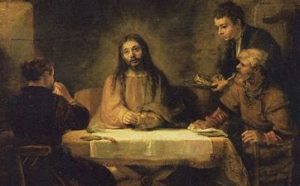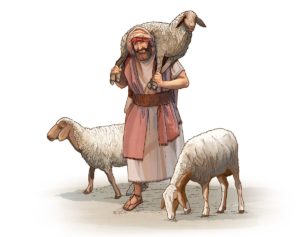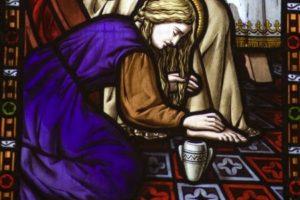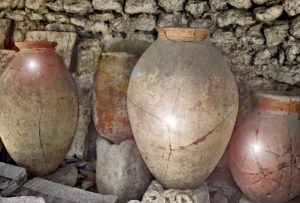1 Corinthians 11:23-291NIV New International Version Translations
23 For I received from the Lord what I also passed on to you: The Lord Jesus, on the night he was betrayed, took bread, 24 and when he had given thanks, he broke it and said, “This is my body, which is for you; do this in remembrance of me.” 25 In the same way, after supper he took the cup, saying, “This cup is the new covenant in my blood; do this, whenever you drink it, in remembrance of me.” 26 For whenever you eat this bread and drink this cup, you proclaim the Lord’s death until he comes. 27 So then, whoever eats the bread or drinks the cup of the Lord in an unworthy manner will be guilty of sinning against the body and blood of the Lord. 28 Everyone ought to examine themselves before they eat of the bread and drink from the cup. 29 For those who eat and drink without discerning the body of Christ eat and drink judgment on themselves.
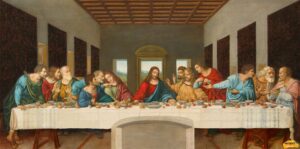 Background
Background
Because Paul is responding to a letter FROM the church of Corinth, it would be nice if we knew the exact nature of their questions. We must guess that it concerns the Lord’s Supper. In the verses within 1 Corinthians 11:17-34, will be the only place where Paul discusses Communion. We surmise that the Corinthians were partaking in the bread and the cup regularly, but their was something about their behavior at the Lord’s table that caused Paul to question whether what they were doing could rightly be called the “Lord’s Supper.” Although their words may have recalled the night of Jesus’ death, their actions were telling a different story.
Immediately prior to verses 23-26 are important to understanding Paul. He reveals that the Corinthians’ table etiquette was not even recognizable as the Lord’s Table. In verse 17-22, we learn that some had plenty of food and drink while others had little. Some are drunk before their brothers and sisters even arrive. Clearly, some of the Corinthians are more affluent than others. They can afford more food and, because they do not have to work all day, can begin fellowship earlier. These folks, Paul says, have homes in which they could eat and drink before coming to worship.
Here we have to guess a bit. From the apostle’s description of their “table,” some of the Corinthians are allowing their social position in society to dictate their behavior to one another rather than allowing Christ’s behavior to be their guide for Communion. In verse 11:17, Paul claims that their Lord’s Supper celebration is actually doing more harm than good to their community. Paul accuses those who have overeaten and are drunk of actually despising God’s church and trying to shame those who have nothing (11:22). The Corinthian believers who have the means to get drunk, to eat their fill, and to live in their own homes are behaving no differently than anyone else in their same social position. And that is the problem. They have joined a community in which the scandal of the cross has reconfigured the social barriers between slave and free, the advantaged and disadvantaged now worship together in a “city church.” They all profess faith in a Lord, who, though having status equal to God, chose to serve all, even those who have nothing. At the communion table, they have been called to remember the Lord’s actions by reflecting the same beliefs.
It is significant to point out that this tradition begins not with the prayer and the breaking of the bread, but a step earlier in the story. Most English translations of verse 23 depict the setting of the story as follows: “on the night when He was betrayed he took bread.” The verb rendered here as “betrayed” is paradidomi. The verb simply means to hand over or to pass on, as it does in 11:2 with the passing on of traditions. Because the verb can also be used in the context of being handed over to the authorities, it can also mean being arrested. The common English translation of this text recalls the night when Judas handed Jesus over, thus, betraying him.
Paul uses the term paradidomi in reference to Jesus’ death elsewhere. According to Romans 4:25, Jesus was “handed over for our trespasses and raised for our justification.” Furthermore, the apostle claims that God did not spare His own Son but gave Him up (paradidomi) for us all (Romans 8:32). In Romans, it is clear that God is the one who is giving Jesus over to death. Now lets move to the beginning of our study verses, 1 Corinthians 11:23. Let’s look at this same beginning but in a somewhat different light. Rather than being reminded that Jesus was handed over by Judas, instead, use the statement as a reminder that Jesus was handed over by God for our sins. This is the same God who called the sinful people of Corinth to be a church.
Apparently, the Corinthians had no problem with believing that Christ died for their sins (15:1-2). There is every reason to believe that they are also recalling the words of 11:23-25 when they partake the bread and the cup in the midst of their fellowship meal together. The behavior of the people in the church of Corinth had been reinforcing society’s social distinctions in the body of Christ. Paul is pointing out that all this demonstrates is that the believers are not modeling their actions on the obedience of Jesus, who was obedient unto death (Philippians 2:1-11). Jesus’ words include the phrase, “Do this in remembrance of me.” “Do this.” Remembering Jesus rightly demands a willingness to relinquish one’s high status to stand in solidarity with those who have nothing. Any celebration of the Lord’s Supper that fails to identify the true message of the cross is not the “Lord’s Table” at all.
Paul reminds us in verse 26 that the actions at the “Lord’s Table” are acts of proclamation. The witness of the Lord’s Table is to tell those participating, everything that the cross makes possible. Our church today must always remember the death of Jesus. How we practice our worship, our Lord’s Supper, is a proclamation of how well our church proclaims God’s Grace. While we may not celebrate the Lord’s Supper today in a manner that can be glutenous or even associated with drunkenness, the same message is very applicable to the Christian life. Can people see God’s Grace through our actions?
Items for Discussion
- We really don’t have “city churches” any more where a diverse social strata is forced together. Many hundreds of denominations allow people of similar beliefs and economic structures gather and worship together. Yet, unity still seems impossible to achieve even within the church. What do you think the issue is about unity?
- Our version of the “Last Supper” is quite simple. Are there still areas that we can go wrong with just like in Corinth?
- What should our Communion service include to be compatible with what Paul is asking for? In other words, what are we remembering?
- Worship years ago included both fellowship and sharing a meal. Do you think we lose something when the “Lord’s Supper” is no longer part of a more fellowship and a meal?
- Do you think the current issues going on in society are similar or different than those in Corinth? Why?
- There is much animosity toward Christians today in our world. Is this something we should try to fix? How?
- There is an old philosophy that says to seek common ground, just throw out what you cannot agree on. What is wrong with that method? Is there anything right about it?
Discussion Challenge
- Paul says Corinth struggled with inequality of free time, income/wealth and a misplaced attitude on self-worth. We are told today that our world is also struggling with these same issues. What would Jesus require of us to fix this?
- 1NIV New International Version Translations

